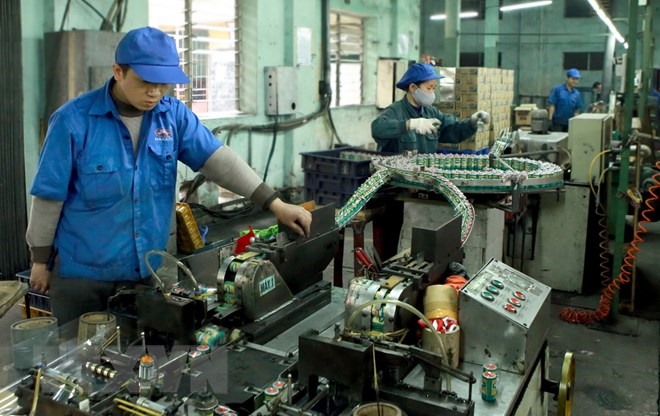Viet Nam continued to lead the ASEAN Manufacturing Purchasing Managers Index (PMI) rankings in August, despite a slower improvement in its goods-producing sector, Nikkei’s IHS Markit reported on Tuesday.

Viet Nam continued to lead the ASEAN Manufacturing Purchasing Managers Index (PMI) rankings in August, despite a slower improvement in its goods-producing sector, Nikkei’s IHS Markit reported on Tuesday.
According to the report, Vietnam’s PMI posted 53.7 in August, signalling a further solid improvement in business conditions. The health of the sector has now strengthened for 33 successive months.
However, the latest reading was down from 54.9 in July and pointed to the weakest improvement to operating conditions in four months.
According to the report, Vietnamese manufacturers continued to record growth with new orders during August. Although the rate of expansion eased, it remained sharp amid reports of improving client demand. New export orders also rose again over the month, but to a lesser extent than total new business. Meanwhile, backlogs of work decreased marginally for the third month running.
"Continued strong growth of new orders resulted in a further monthly increase in manufacturing production. August’s rise in output was solid, albeit the slowest since April," the report states.
A slowdown in employment growth was also registered, with the rate of job creation in August much weaker than June’s record high. Where staffing levels increased, this was linked by panellists to rising workloads. Employment has risen continuously on a monthly basis for almost two-and-a-half years.
The rate of expansion in purchasing activity remained strong in August as firms responded to higher new orders and planned for future growth of production. Efforts to build inventories were generally successful. Stocks of purchases rose for the fifth month running, and at the fastest pace since February. Stocks of finished goods also increased, and for the second consecutive month.
Input prices continued to rise sharply, albeit at a reduced rate. Where input costs increased, this was linked to higher raw material prices and a depreciation of the Vietnamese dong against the US dollar. Rising input costs fed through to an increase in output prices. That said, the rate of inflation eased to a three-month low amid competitive pressures.
A lack of raw materials contributed to longer suppliers’ delivery times in August, following no change in lead times in the previous month.
Despite remaining optimistic overall, Vietnamese manufacturers recorded a marked drop in confidence during August, with sentiment the lowest since the series began in April 2012. According to respondents, positive sentiment reflected expectations of improving demand and higher new orders.
“Although seeing a slowdown in growth of output in August, the Vietnamese manufacturing sector appears to be on a sound footing at present thanks to an ability to continue to secure strong inflows of new work. That said, business confidence dropped the lowest since the series began in early-2012 suggesting that concerns around global trade flows may start to impact Vietnamese firms over the coming months,” Andrew Harker, associate director at IHS Markit, said. — VNS





